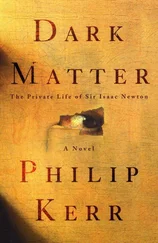Philip Kerr - A Man Without Breath
Здесь есть возможность читать онлайн «Philip Kerr - A Man Without Breath» весь текст электронной книги совершенно бесплатно (целиком полную версию без сокращений). В некоторых случаях можно слушать аудио, скачать через торрент в формате fb2 и присутствует краткое содержание. Год выпуска: 2013, Издательство: Quercus, Жанр: Триллер, на английском языке. Описание произведения, (предисловие) а так же отзывы посетителей доступны на портале библиотеки ЛибКат.
- Название:A Man Without Breath
- Автор:
- Издательство:Quercus
- Жанр:
- Год:2013
- ISBN:нет данных
- Рейтинг книги:4 / 5. Голосов: 1
-
Избранное:Добавить в избранное
- Отзывы:
-
Ваша оценка:
- 80
- 1
- 2
- 3
- 4
- 5
A Man Without Breath: краткое содержание, описание и аннотация
Предлагаем к чтению аннотацию, описание, краткое содержание или предисловие (зависит от того, что написал сам автор книги «A Man Without Breath»). Если вы не нашли необходимую информацию о книге — напишите в комментариях, мы постараемся отыскать её.
A Man Without Breath — читать онлайн бесплатно полную книгу (весь текст) целиком
Ниже представлен текст книги, разбитый по страницам. Система сохранения места последней прочитанной страницы, позволяет с удобством читать онлайн бесплатно книгу «A Man Without Breath», без необходимости каждый раз заново искать на чём Вы остановились. Поставьте закладку, и сможете в любой момент перейти на страницу, на которой закончили чтение.
Интервал:
Закладка:
Once again Lutz hardly looked convinced by my arguments. I wasn’t surprised: that’s the trouble with dyed-in-the-wool Nazis – stupidity, ignorance and prejudice always get in the way of them seeing the bigger picture. But for that they might be impossible to deal with.
*
Glinka Park was a landscaped garden with trees and stupid little paths just inside the southern wall of the Kremlin, with the Luther church and the town hall a stone’s throw to the east. You could smell the circus and hear the complaints of some of the animals from its menagerie further to the west; then again, that might just have been the effect of some town drunks who were making a horizontal party of it with some booze and a little campfire and some pet dogs on the Rathausstrasse side.
In the centre of the park was a large statue of Glinka; around his size fifty-six bronze shoes was a wrought-iron fence that had been made to look like music paper, with notes in positions that you just knew without being able to read music were probably from his most popular symphony. With the Nazis in charge of a large part of the country, it was hard to imagine a Soviet composer finding very much to write a symphony about, unless some modern maestro felt inspired to write a new overture to victory complete with real cannon and bells and a triumphant Russian army, and now that I’d thought about it, that wasn’t hard to imagine at all: 1812 and the Grand Army’s disastrous retreat from Moscow was beginning to seem much more contemporary than felt comfortable. I just hoped I wasn’t going to be another frozen body lying in the snow on the long road back to Berlin.
I saw Martin Quidde before he caught sight of me. He was wandering around with a leather dispatch case in one hand and a cigarette in the other, looking like he didn’t have a care in the world, when in fact it wasn’t like that at all; as soon as he saw me he looked one way and then the other like a cornered dog, as if wondering where to run.
‘Was he a great composer, do you think?’ I asked him. ‘Did he really deserve this? Or were they just short of a nice statue to put in this park whenever it was that some boyar locked the lid on his piano for good?’ I checked Glinka’s dates on the pedestal. ‘1857. Seems like only yesterday. Back then Germany was just a twinkle in Bismarck’s blue eye. If old blood and iron had known then what we know now, would he have done it, d’you think? Unified all the German states into one big happy family? I wonder.’
Quidde hurried me away into the trees as though we were more likely to fall under suspicion if we remained near the statue. Several times he glanced anxiously back, almost as if he expected Glinka to climb down off the pedestal and come after us with a baton and a couple of bars of serious music in his hand.
‘You know, I don’t think Herr Glinka minds very much what I say about him,’ I said. ‘Not as much as a lot of other people I can think of. But then that’s true of nearly everyone these days.’
‘You’ll feel a lot less sanguine about things when I’ve told you what I know,’ he said.
I lit a cigarette and flicked the match onto the slush-covered ground. I was smoking too much again, but then Russia does that to you. It was hard to pay much attention to your health after Stalingrad, knowing that so many Russians were hoping soon to kill you.
‘Then maybe I just don’t want to know,’ I said. ‘Maybe I should be more like Beethoven. It seems to me like he managed to do well enough when he didn’t hear a damn thing. Going deaf is probably very good for your health in Germany. These days I get the impression that listening to what other people say can be lethal. Especially listening to our leaders.’
‘Don’t I know it?’ Quidde said bitterly. He removed his helmet and rubbed his head furiously.
‘Now I begin to see and hear, and I think I might be looking at a man who maybe heard a lot more than just Midge Gillars on Radio Berlin.’
‘If Midge knew what I know, she’d play some very different tunes. Only this time they won’t be the devil’s.’
‘Still, those tunes are the good ones, right? I should know. I’m the apostle of cheap music. Just don’t tell the fellow on the pedestal.’
‘Did you come alone?’ he asked anxiously.
I shrugged. ‘I was thinking of bringing a couple of show girls. But then again, you did ask me to come alone. Now what’s this all about?’
Quidde lit another cigarette unsteadily with the stub of the old one. This did nothing for his nerves: the smoke plumed from his twitching mouth and flaring nostrils like the puff from a runaway train.
‘You’d better let some hydrogen out, corporal, or you’ll float away. Take it easy. Anyone would think you’re nervous.’
Quidde handed me the dispatch case.
‘What’s this?’ I asked.
‘A reel of recording tape,’ he said.
‘What do I want with this? I don’t own a tape recorder. I wouldn’t even know how to work one.’
‘That tape was made by Friedrich Ribe,’ said Quidde. ‘And it might just be what got him killed. Only two people knew what was on that tape, and one of them is dead.’
‘Ribe.’
Quidde nodded.
‘So how did your throat escape getting cut?’
‘I’ve asked myself the same question. I think Ribe and Greiss were killed because they were on the same duty roster. Whoever killed them must have figured they both heard what in fact only Friedrich Ribe had heard. And me, of course. Ribe wouldn’t ever have let Werner Greiss listen to what’s on this tape. At the time we all thought it was Greiss who was the Gestapo’s canary, when in fact it was Jupp Lutz all along. I only found out myself a couple of weeks ago when a friend from Lubeck wrote and told me about it.’
‘But Ribe played it for you,’ I said.
Quidde nodded. ‘We were friends. Good friends. Looking out for each other since way back.’
I glanced inside the dispatch case, which contained a box with the letters of the German Electricity Company – AEG – printed on it.
‘All right. It’s not the MDR Symphony Orchestra and it’s not the lost chord. So what’s on this tape?’
‘You remember when the leader came to Smolensk a few weeks ago?’
‘I still treasure the memory.’
‘Hitler had a meeting with Clever Hans in his office at Krasny Bor. In private. It was real cosy apparently – no aides, no adjutants, just the two of them. Only the telephone in the office hasn’t been working properly. It doesn’t always hang up when you drop the receiver back in the cradle, with the result that the operator continues to hear everything that’s said. Well, more or less everything.’
‘And so Ribe decided to tape-record it?’
‘Yes.’
‘Jesus.’ I sighed. ‘What was he thinking?’
‘He wanted a souvenir. Of Hitler’s voice. You get used to hearing him making a speech, but no one ever hears what he’s like when he’s relaxed.’
‘A signed photograph would have been less dangerous.’
‘Yes. About halfway through the tape Von Kluge guesses that he and Hitler could have been overheard, because he lifts the receiver and then bangs it down hard several times before the line is terminated.’
‘And so, what – Hitler and Von Kluge were worried that the army’s plans for a summer campaign in 1943 were compromised? Yes, I can see why that might bother them a bit.’
‘Oh, it’s worse than that,’ said Quidde.
I shook my head. I couldn’t think of anything that was worse than giving away military secrets; then again, those were the days in which my ideas of what was worse and what was worst were limited by a naive faith in the inherent decency of my fellow Germans. After almost twenty years in the Berlin police, I thought I knew all about corruption, but if you are not corrupt yourself, then I think you cannot ever know just how corrupt others can be in their pursuit of wealth and favour. I think then I must still have believed in things like honour and integrity and duty. Life had yet to teach me the hardest lesson of all, which is that in a corrupt world about the only thing you can rely on is corruption and then death and yet more corruption, and that honour and duty have little place in a world that has had a Hitler and a Stalin in it. And perhaps the most naive thing about my reaction was that I was actually surprised at what Quidde told me next.
Читать дальшеИнтервал:
Закладка:
Похожие книги на «A Man Without Breath»
Представляем Вашему вниманию похожие книги на «A Man Without Breath» списком для выбора. Мы отобрали схожую по названию и смыслу литературу в надежде предоставить читателям больше вариантов отыскать новые, интересные, ещё непрочитанные произведения.
Обсуждение, отзывы о книге «A Man Without Breath» и просто собственные мнения читателей. Оставьте ваши комментарии, напишите, что Вы думаете о произведении, его смысле или главных героях. Укажите что конкретно понравилось, а что нет, и почему Вы так считаете.












